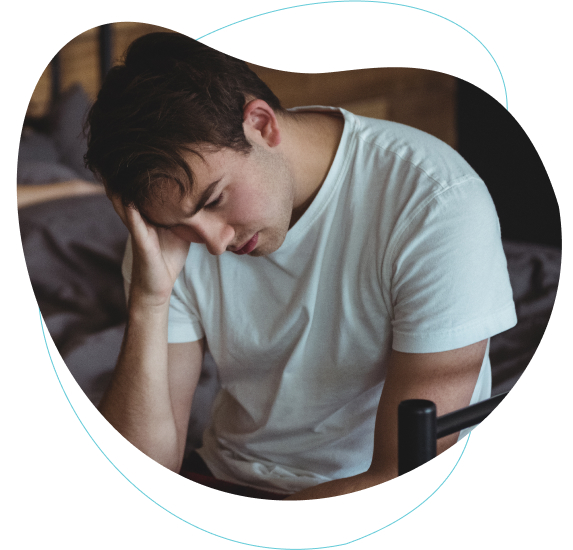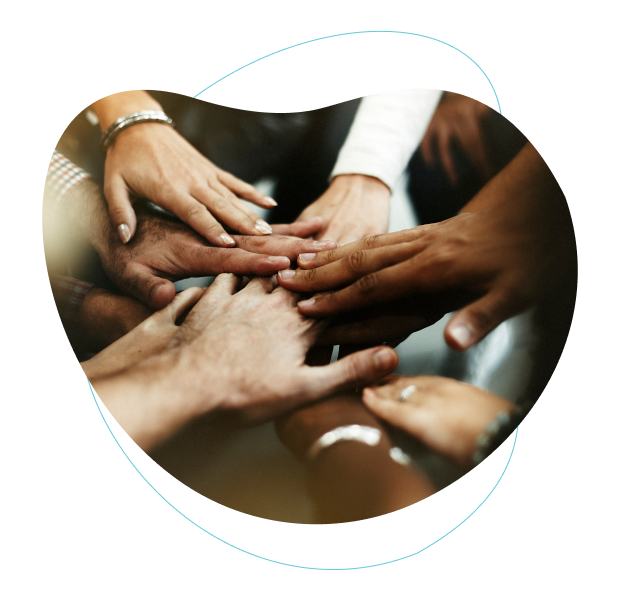Drugs
Problem Drug Use Counselling Services in Calgary
Problem drug use counselling is available at Sana Psychological for those unsure if they have an issue with drugs, those who know they have an issue and are starting to explore treatment, and those who have been in a long-term recovery process.
Individual outpatient therapy is offered here for individuals struggling with substance use and for family members and loved ones currently impacted by another person’s unhealthy relationship with substance use.

Depending on needs and preference, problem drug use treatment can be short-term (3-6 months) or long-term (6+ months). Typically, long-term support services are recommended as issues involving drugs are chronic conditions and can create other mental health concerns. However, if this is not possible, then we will work to provide you with coping strategies and points of reflection that you can carry forward. The initial session or two involves getting to know your background information, challenges, and strengths.
Recommendations and strategies will be provided along the way, and collaboratively we will discuss treatment goals and action steps. The hope is to support you in improving your overall mental health, relationships, and quality of life.

What is Problem Drug Use?
Problem drug use is typically defined as an individual feeling like they have lost control of their drug use, it’s become unmanageable, and/or it is causing harm(s) to their life without willingness or inability to cut down or stop.
While psychiatrists and psychologists have developed many classification criteria, another indicator of drug abuse is when the individual using substances says there is a problem. Formal assessments are not provided at Sana Psychological, but an informal assessment of how things are going will occur during the sessions.

Types of Problem Drug Use
Opioids
Alcohol
Alcohol, though legal and widely available, remains the #1 misused or abused substance. It causes the most damage to people and society through lost productivity, motor vehicle accidents, and health-related deaths from certain cancers and cardiovascular conditions.
The detoxification process from alcohol can be fatal (unlike opioid withdrawal, which is uncomfortable but not lethal). Therefore, someone who has been a chronic user of alcohol and consumes it in high quantities or has experienced severe withdrawal symptoms in the past may require medically supervised detoxification. While Sana Psychological does not offer medical support or supervised detoxification, we do offer before and after counselling, as well as support in finding a detoxification site.
Cannabis
Prescription Medication
Other Drugs


Common Signs of Substance Dependence
It can be difficult to determine if drug use is unhealthy or has crossed the line into dependence. This is not something that you have to figure out on your own.
Let Sana Psychological help you determine where things are and provide recommendations accordingly. This is an informal checklist to help you get a general idea of the extent of your or your loved one’s challenges with drug use. Read through the following list and answer whether or not the statement applies to you.
- Tolerance (using more with less effect)
- Withdrawal (nausea, shaking, fatigue, manic activity, chills, cramps, diarrhea)
- Increased isolation from loved ones and previously enjoyed activities
- Anhedonia-loss of pleasure with things that used to provide enjoyment
- Using just to feel “normal” rather than intoxicated
- Paranoia
- Hypervigilance
- Cravings
- Post-acute withdrawal syndrome (PAWS)
- Relational issues
- Work issues
- Functioning issues
- A return of physical pain despite continued use
- Side effects that are new or increasing
- Increasingly more time spent on thinking about, planning for, securing, and/or using substance(s)
- Exploring other substances
- Feeling numb and/or reactive much of the time
- Suicidal thoughts/ideation/intent
- Increased anxiety, depression or other mental health problems
- Increased hopelessness and despair
- Panic about the thought of not having your substance available

Causes of Problem Drug Use


Our Treatment Approaches for Substance Use Disorders

Specialized Mental Health Treatment
Our clinicians have a variety of backgrounds that help us treat Addiction, including: Cognitive-Behavioural Therapy (CBT), Acceptance and Commitment Therapy (ACT), Solution-Focused Therapy (SFT), Motivational Interviewing (MI), SMART Recovery Facilitation, and Twelve Step Facilitation into her sessions as beneficial to you. Follow-up appointments generally involve a check-in to see presenting issues and immediate things that have come up that you may want to process, follow-up on any steps discussed in past appointments, followed by an in-depth exploration of challenges, patterns, and coping. Substance use disorder sessions are active and engaged and we will provide you with strategies, suggestions, and education to support you. Sessions come from a non-judgmental, compassionate, empathetic place.


Support for Loved Ones

Why Choose Sana Psychological?
We hope you will choose Sana Psychological because you feel a fit in the messaging, approach, and goals with your own journey and attitude. The approach is collaborative, solution and change-focused, and active.
Sessions are offered in-person in Calgary, Alberta or by using Technology Assisted Counselling which can consist of phone or video sessions depending on need and preference. Cost is $200-220/50 minute session depending on your clinician. Sessions are available to anyone who is in the provinces of Alberta, New Brunswick, or Canada-wide depending on your provider. Payment options include cash, debit, credit card, e-transfer, and direct billing may be available with a number of different insurance carriers. Drug counselling can be short or long-term, depending on your needs.
Appointments can be scheduled online at anytime. If you have questions about the services offered, do not hesitate to reach out. Email will be the quickest way to get in touch. We aim to respond to emails and phone calls within 1 business day.



Book An Appointment Today
It would be an honor and pleasure to meet with you and discuss your journey of change, regardless of where you are at. Scheduling an appointment can be done through the online scheduling system or by contacting us by email or phone for more information.

Frequently Asked Questions
A: Addiction will impact the brain differently depending on the substance(s) or behaviour(s) being misused, though there are some common symptoms amongst all problem behaviours and substances. The National Institute on Drug Abuse has a lot of comprehensive information about how drugs impact the brain. The National Institute on Alcohol Abuse and Alcoholism has information about how alcohol affects the brain. Generally, people will find physiological, cognitive, emotional and social changes that can impact memory, motivation, mood, behaviour, and overall functioning.
A: I love this question, as I greatly enjoy seeing others being proactive in their health. Most people have at least some genetic risk of compulsive behaviours as very few families and populations do not have this in their lineage somewhere. Being moderate or even abstaining from mood-altering substances and being thoughtful about self-care, reducing stress, and a healthy lifestyle can significantly impact whether one manifests dependency.
A: If people are using drugs and some people around them are not, this creates a great deal of stress and pressure on the relational unit. Drug use can lead to isolation which further increases the harm to the individual using, and to their relationships and functioning. Drug use will be less detrimental to relationships if both people are users, but there are still increased risks for conflict, dysfunction, and harm.
A: No magic or surprises here; Problem drug use counselling involves honest, collaborative conversations where we look at changes you would like to make and steps you identify that will help you get there. The difference in counselling is having an empathetic, neutral party where you can evaluate your process in an unbiased, unpressured way, different than trying to seek treatment with invested family or friends.
A: Counselling does not play a role in change for everybody who is struggling with problem drug use. However, for some, it helps provide accountability, a safe space to explore options and support in navigating some of the trickier and more uncomfortable parts of life. You are still the main agent of change, and the problem drug use counsellor is there to support you along the way.
A: There is no “best” or “right” type of therapy for drug dependency. In fact, the type of therapy is only a small part of the equation, in addition to inherent client factors, the environment in which change occurs, and therapist factors. Fit, established by feeling comfort, safety, and trust with the therapist, is a very important component of change. Once this has been created, the types of therapies used can be flexible and applied as needed to your unique situation.
A: Some people refer to “treatment” when talking about residential treatment programs or a more structured Intensive Outpatient Program. Often the components of the therapy in these intensive treatments will be similar to what happens in counselling, just without the intense time frames, residential stay, and everything that comes with that (housing, food, recreational programming, group therapy, etc.). All of these pathways to recovery are treatment for the same condition but with different intensity levels. The needs will depend on the person and their situation.

